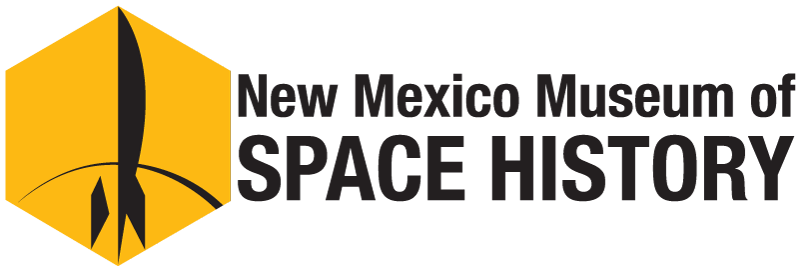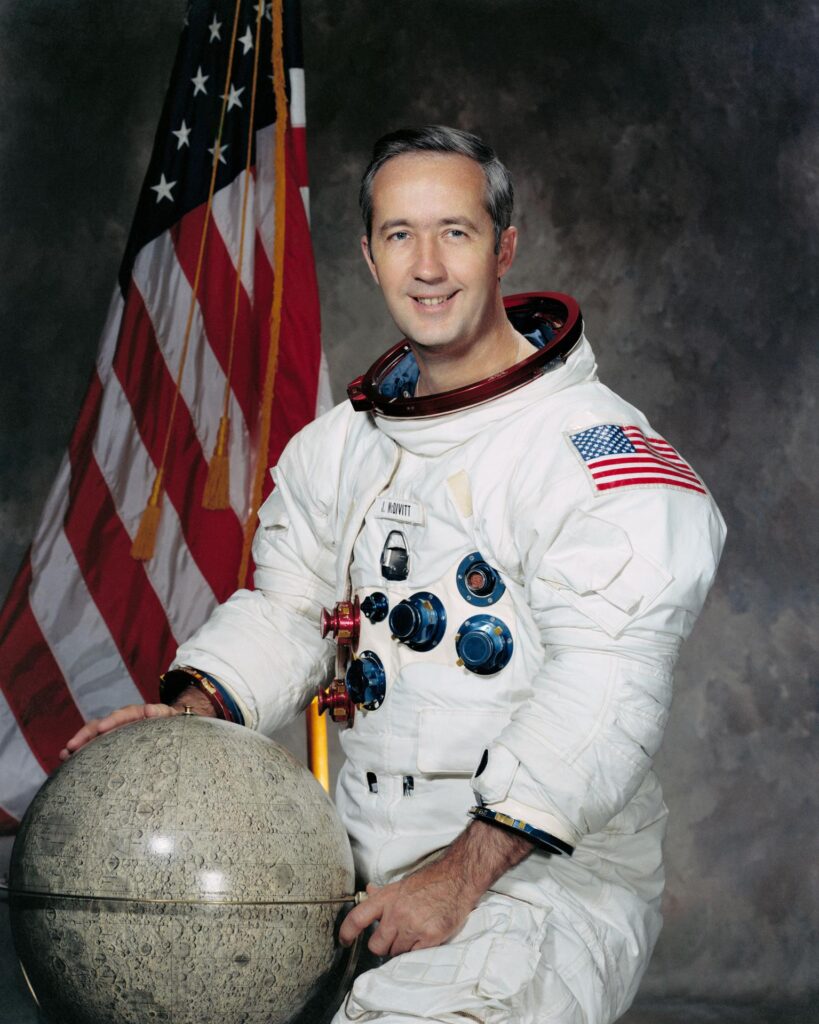Commanded Apollo 9, the third manned Apollo mission.
James A. McDivitt was born on June 10, 1929, in Chicago, Illinois. He graduated from Central High School in Kalamazoo, Michigan and entered the Air Force as an aviation cadet in January 1951, and received his pilot wings and commission as second lieutenant in May 1952 at Williams Air Force Base (AFB), Arizona. He completed combat crew training in November 1952.
McDivitt then went to Korea where he flew 145 combat missions in F-80 and F-86 aircraft with the 35th Bombardment Squadron. He returned to the United States in September 1953 and served as pilot and assistant operations officer with the 19th Fighter Interceptor Squadron at Dow AFB, Maine. In November 1954, McDivitt entered the advanced flying school at Tyndall AFB, Florida, and in July 1955, went to McGuire AFB, New Jersey, where he served as a pilot, operations officer, and later as a flight commander with the 332d Fighter-Interceptor Squadron.
McDivitt enrolled in the University of Michigan in June 1957 under the Air Force Institute of Technology program and received a Bachelor of Science degree in Aeronautical Engineering in 1959. He then went to Edwards AFB, California, as a student test pilot in June 1959. He remained there with the Air Force Flight Test Center as an experimental flight test pilot and completed the U.S. Air Force Aerospace Research Pilot School before joining the Manned Spacecraft Operations Branch in July 1962. He has logged more than 5,000 hours flying time, more than 3,500 hours in jet aircraft.
James McDivitt was selected to be an astronaut by NASA in September 1962. He first entered space as Command pilot of Gemini IV, a 66-orbit mission flown from June 3 to 7, 1965. Highlights of the mission included an opening of the spacecraft cabin doors, an extravehicular activity (EVA) performed by Pilot Ed White (the first American spacewalk), and the completion of twelve scientific and medical experiments.
From March 3 to 13, 1969, McDivitt commanded Apollo 9, an earth orbital mission, and the first demonstration of the entire set of Apollo flight hardware. His crew consisted of David Scott, Command Module pilot, and Lunar Module pilot Russell Schweikart. Accomplishments of the mission include the first flight of the lunar module, the first test of the Apollo spacesuits, the first rendezvous between the lunar and the command/service module, and first joint operation of two manned spacecraft in flight, and an EVA by Schweikart. Apollo 9 was a major stepping-stone in the effort culminating in the Apollo 11 lunar landing just four months later. With his second and final mission, McDivitt logged 14.12 days in space.
In June 1969, McDivitt left the Astronaut Office to be the manager for Lunar Landing Operations in the Apollo Spacecraft Program Office. In this position, he was responsible for planning the lunar landing missions subsequent to the first landing and redesigning the Apollo spacecraft to extend their lunar exploration capability. In September 1969, he became manager of the entire Apollo Spacecraft Program.
James A. McDivitt retired from the Air Force as a Brigadier General and left NASA in June 1972, to take the position of Executive Vice-President, Corporate Affairs for the Consumers Power Company. In March 1975, he joined Pullman, Inc. as Executive Vice-President and a Director then in October of that year became President of the Pullman Standard Division, The Railcar Division, and later had additional responsibility for the leasing and engineering and construction areas of the company. In January 1981, he joined Rockwell International to be Senior Vice President, Government Operations and Rockwell International Corporation, Washington, D.C.
General McDivitt has been awarded two NASA Distinguished Service Medals; the NASA Exceptional Service Medal; two Air Force Distinguished Service Medals; four Distinguished Flying Crosses; five Air Medals; the Chong Moo Medal from South Korea; the USAF Air Force Systems Command Aerospace Primus Award; the Arnold Air Society JFK Trophy; the Sword of Loyola; and the Michigan Wolverine Frontiersman Award, and USAF Astronaut Wings.

